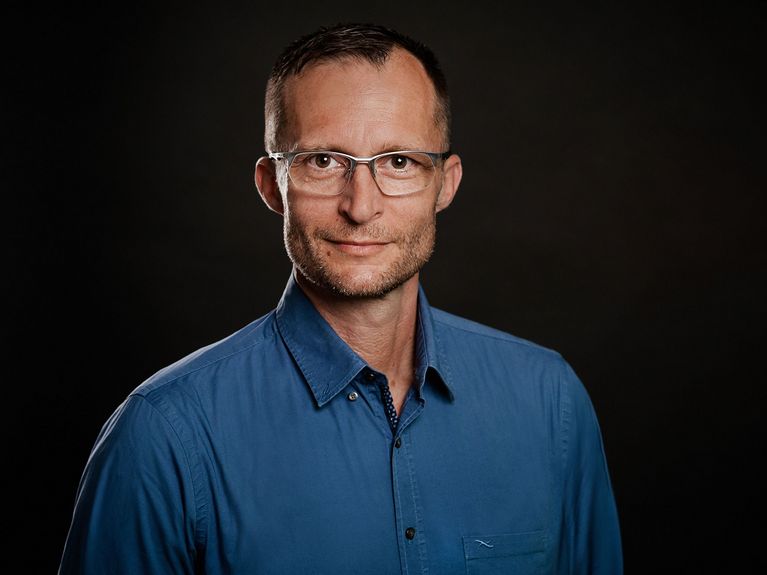Point of View
“Ukraine needs an energy coordination center”

Dr. Frank Meissner is Data and Modelling Lead in the Green Deal Ukraina Project at Helmholtz-Zentrum Berlin. Photo: K-PHOTOGRAPHIE
Winter is just around the corner and Ukraine continues to face energy supply shortages due to the ongoing war. Economist Frank Meissner from the Helmholtz-Zentrum Berlin is part of the initiative Green Deal Ukraina. He and his team have analyzed measures that could ensure Ukraine has enough electricity and heat in the winter.
With the continued Russian aggression against the country and the increasing concentration of attacks on civilian infrastructure like power and heating plants, Ukraine’s civilian population is facing serious problems. Since the beginning of the attacks on energy infrastructure and worsened by the strikes in March and April 2024, more than two-thirds of the country’s power-generating facilities have now been destroyed, damaged or lie in areas controlled by Russia. Our analysis shows that without substantial countermeasures, this could result in an undersupply of up to 18 TWh (20 percent of the already reduced demand) and temporary and regional power cuts up to 90 percent of the time.
While the energy deficit was considered difficult but manageable in summer, the coming winter threatens to make the situation dramatically worse. 70 percent of Ukrainian households are supplied with heat from centralized plants, half of which are combined heat and power plants. The supply cannot be guaranteed for the coming winter months. Many of the combined heat and power plants and cogeneration plants are damaged and there isn’t enough electricity to go around, which means that control systems and pumps can temporarily shut down. As a result, poorly insulated homes, particularly in urban areas, have less heating. This leads to unacceptable conditions for residents – especially children, the elderly and the sick – and will drive more people to flee, even from areas not directly affected by the fighting.
Our analysis shows that with the aid of targeted measures, planned power cuts could be almost entirely avoided: power generation systems would need to be repaired as quickly as possible, decentralized electricity and heat generation plants would need to be added, and transmission capacities with Poland, Romania, Hungary and Slovakia would need to be expanded.
In addition to time, skilled personnel, transport capacities and financial resources, this would above all take coordinating structures and reliable market and administrative structures. In order to attract domestic and foreign investment for rebuilding in Ukraine, the country must undertake structural reforms of the energy markets. This includes further liberalization by securing market mechanisms and building up administrative capacities. In this regard, it is also important to empower municipalities to implement feasible and necessary solutions on the ground.
A yet-to-be-established “energy coordination center” could play a vital part – by improving the coordination of efforts both within Ukraine’s borders and between it and its partners, while also increasing the flow of information between the stakeholders. As a result, decisions could be made more quickly, and the use of resources could be better planned and monitored. Such an energy coordination center would help to rebuild Ukraine more efficiently and effectively. This would require strong political legitimacy within Ukraine and with Western partners; to establish that legitimacy, key players from the European energy sector would have to be involved.
Germany should work to ensure that such structures are rapidly created and expanded by Ukraine in coordination with its Western partners. It is important now for Germany and the EU to not only support Ukraine militarily, but also to help restore its energy infrastructure. The sooner the energy network is stabilized, the lower the risk of a humanitarian catastrophe, which could have far-reaching consequences not only for Ukraine, but also for Europe in the form of intensified migration.
About the Initiative:
Green Deal Ukraina (GDU) is supported by Germany, Poland and Ukraine. The initiative’s goal is to help Ukraine’s political decision-makers and society at large establish a sustainable energy system and prepare the country for admission as a full member of the EU. To this end, GDU is setting up a think tank in Kyiv.
Readers comments